Pollen
Freeze-dried extracts of pollen. Pollen serves as one of the most common triggers for seasonal allergies on a global scale. Depending on the time of year, weeds, grasses, and trees release pollen as part of their reproductive process. Although the wind carries these tiny and lightweight pollen grains, unfortunately, they often find their way into our noses, eyes, and lungs. Despite their delicate and innocent appearance, they can elicit allergic reactions in certain individuals, commonly known as hay fever. Symptoms typically include a runny nose, sneezing, and itchy eyes, with some people also experiencing lower respiratory symptoms such as asthma.
In individuals prone to allergies, their immune system responds to allergenic proteins by producing IgE antibodies, a process referred to as sensitization. These antibodies then attach to receptors on mast cells and basophils, which are the cells responsible for allergic diseases. When a sensitized person encounters pollen during the appropriate season, these effector cells release various mediators, including histamine. The collective action of these mediators is what triggers the onset of allergic symptoms.
Pollen
Other categories
Categories
Showing all 8 results
-
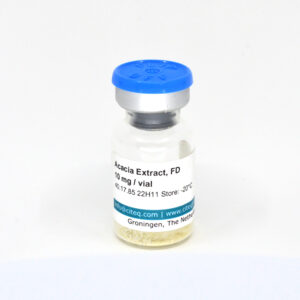
Acacia extract 40.17.85
10 mg freeze dried extract of Acacia (Acacia spp.) pollen. Acacia is a genus of trees and shrubs...
€128.40
Birch extract 40.03.85
5 mg freeze dried extract of Birch (Betula Pendula) pollen. Belonging to the Betulaceae family,...
€64.20
Cypress extract 40.22.85
5 mg freeze dried extract of Cypress (Cupressus Arizonica) pollen. Cupressus arizonica, commonly...
€64.20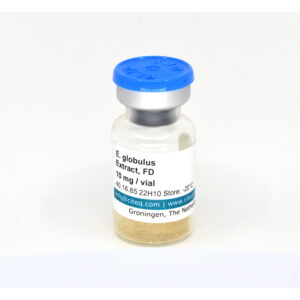
Eucalyptys extract 40.16.85
10 mg freeze dried extract of Eucalyptus (Eucalyptus globulus) pollen. Eucalyptus, scientifically...
€128.40
Olive tree extract 40.11.85
9 mg freeze dried extract of Olive tree (Olea europaea) pollen. Belonging to the family Oleaceae,...
€128.40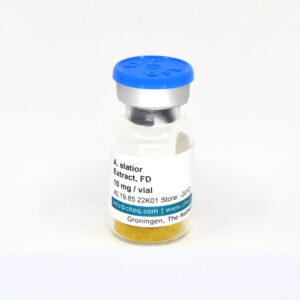
Ragweed extract 40.19.85
10 mg freeze dried extract of Ragweed (Ambrosia elatior) pollen. Ragweed is a genus of annual...
€128.40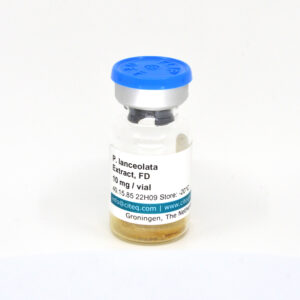
Ribwort extract 40.15.85
10 mg freeze dried extract of Ribwort (Plantago lanceolata) pollen. Ribwort, also known as Plantago...
€128.40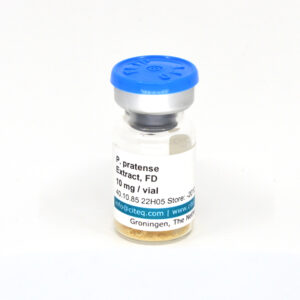
Timothy grass extract 40.10.85
10 mg freeze dried extract of Timothy Grass (Phleum Pratense) pollen. Timothy grass is a tall...
€128.40Freeze-dried extracts of pollen. Pollen serves as one of the most common triggers for seasonal allergies on a global scale. Depending on the time of year, weeds, grasses, and trees release pollen as part of their reproductive process. Although the wind carries these tiny and lightweight pollen grains, unfortunately, they often find their way into our noses, eyes, and lungs. Despite their delicate and innocent appearance, they can elicit allergic reactions in certain individuals, commonly known as hay fever. Symptoms typically include a runny nose, sneezing, and itchy eyes, with some people also experiencing lower respiratory symptoms such as asthma.
In individuals prone to allergies, their immune system responds to allergenic proteins by producing IgE antibodies, a process referred to as sensitization. These antibodies then attach to receptors on mast cells and basophils, which are the cells responsible for allergic diseases. When a sensitized person encounters pollen during the appropriate season, these effector cells release various mediators, including histamine. The collective action of these mediators is what triggers the onset of allergic symptoms.